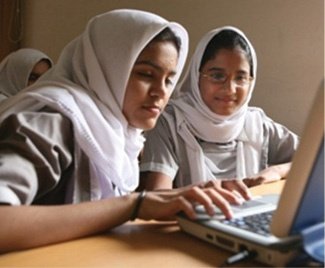
Distance education has been around for quite some time, but its inefficacy was soon realized. Internet brought with it some rays of hope as an immense amount of knowledge became widely available. Despite the fact that it was freely accessible, it was not organized. Today we are witnessing a revolution in e-learning with the introduction of MOOC (massive open online course). Because MOOCs are not only massive and open, but are also organized and structured, and aim to transfer knowledge with minimum of pre-requisites. MOOCs are ideally beneficial for countries where education standards are not up to the mark. Knowledge sharing has become a reality with MOOCs.
I work at COMSATS Institute of Information Technology (Virtual Campus) or VCOMSATS for short. This is a distance-learning environment based on MOOCs. Most of our students are from Pakistan. In this article, I would describe some aspects in which MOOCs have affected Mathematics education in Pakistan.
Firstly, it is so heartening to see that students from remote areas are now able to pursue studies due to MOOCs. It was their birth right that they were deprived of. After all, in todays global village, it should not take a Hardy to recognize the Ramanujan. Here at VCOMSATS we talk to students on weekly basis and we witness that often students of backward areas display an extraordinary understanding of Mathematics. Talent and intellectual ability is regardless of geography.
Secondly, a minor but nevertheless worthy change is that VCOMSATS has initiated a tradition of providing course notes to the students, which was hitherto not so common in Pakistan. Within the span of a single semester we have prepared course notes written by local teachers for about 10 courses ranging from Calculus to Differential Geometry. The notes are detailed, with various examples and illustrations. This is an unprecedented step in the history of Mathematics teaching in Pakistan.
As mentioned in the beginning that Internet brought with it a hope of “unified knowledge”. It is now fully realized with the advent of MOOCs. Nowadays teachers frequently refer to web resources for further study, and it is remarkable that students all around the globe refer to same or similar web resources, regardless of their institution. This has enabled students to discuss topics of interest on equal footing with students of any institution. With platforms like Coursera (globally) and VCOMSATS (locally), online educations is no more an informal education method. Students of MOOCs are being provided high quality education and for Mathematics, the ground is rather more fertile than the other sciences.
For experimental sciences, MOOCs are not the ideal platform while for Mathematics they are, because the strength of Mathematics lies in its independence from material sources. To do Mathematics, all you need is a paper and a pen, and you can set the world on fire with your sheer ideas. To quote one instance, Physicists all over the world celebrated the year 2005 as the “Year of Physics”, because 100 years from then, in 1905, Einstein presented the idea of Relativity. What was that idea? It was a set of equations on relative motion which shook our understanding of space and time.
The future of Mathematics education along with MOOCs is very bright. With the advent of email collaborations, it is no more an impossibility to teach subjects like String Theory or Algebraic Geometry online. Most importantly, the confidence students attain by doing self study via online resources is priceless. With more mathematics MOOCs, they can learn new subjects and advance their knowledge. They can bring variety to their research by incorporating branches of specialization which are yet not taught in their local university.
For parting words, I have to say that each year many talented students face rejections from varsities. Many times due to unavailability of seats, that is unjust in a sense. Although now those students can quench their thirst by learning online and as mentioned there is no limit to their learning; they can learn advanced subjects and research topics as far as Mathematics is concerned. But will the qualifications earned online, will also earn them a job, only time will tell.